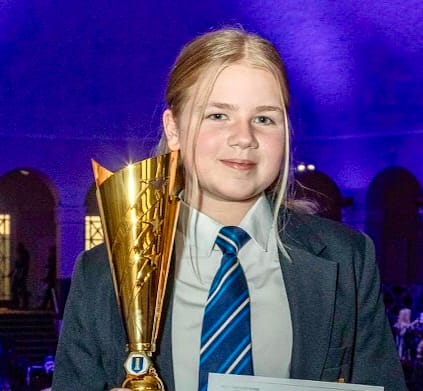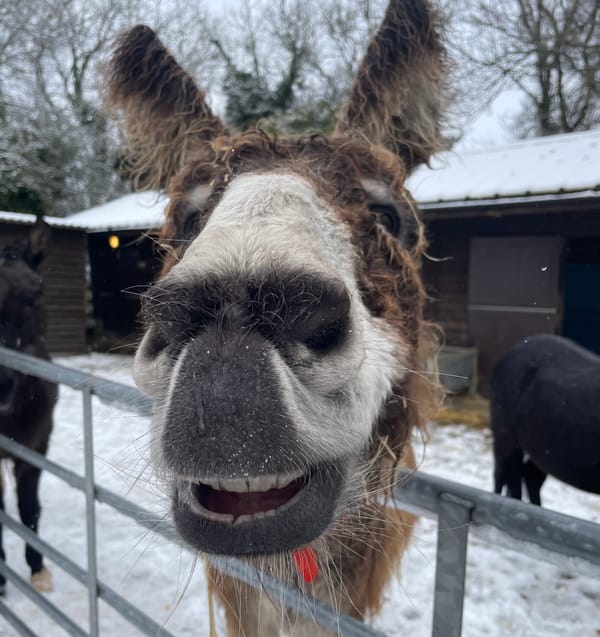Boss of fast expanding mental health charity demands PM copies US good news push for kids’ social media ban

The boss of one of Britain’s fastest growing mental health charities is demanding PM Riski Sunak urgently copies America’s good news push for a fast-track ban on the ‘sinisterly addictive’ social media for kids.

Dawn Carey, CEO of In Charley’s Memory said unfunded charities such as hers are collapsing under the earthquake of mental health disorders among the young.
Amid many factors, including the pandemic she said that a ‘monumental’ amount of responsibility for the the poor mental health of adolescents, falls on the sinisterly addictive social media apps such as TikTok, Instagram and more.

With the mental health pandemic at breathtaking levels, and worsening by the month, she is calling for the same legal changes as what American politicians are pushing for.
This month in an unprecedented move, four senior fed-up parent politicians introduced simple legislation that would to ban all children under 13 from using social media.
The Protecting Kids on Social Media Act would also require parental consent for children aged 13 to 18.
And in the groundbreaking bill, platforms would be banned from using algorithms to recommend content to those young users. Adults would have to create an account for their teens, providing a valid form of ID to become users on a platform, according to the bill.
In Charley’s Memory has seen demand for their services go up by 1000% since it was set up in 2018, following the death of Charley aged 18. Now they are motivated to ensure there are ‘No more Charley’s.
Dawn said: “Enough is enough, absolutely beyond enough. The UK Prime Minister has to recognise that the mental health crisis is not just an ordinary crisis. It’s the biggest thing to hit this country since World War Two. Yes it is really that bad.
“Masses of kids and young people are suffering mental health so bad they don’t want to go to school, are miserable, suffering a host of social phobia and addictions, and often don’t want to live. This is a disgrace.
“The problem is that the social media companies don’t seem to care, and are making billions of pounds out of children. And the politicians don’t either understand or care. And it’s the poor children, millions of them in the middle, who are being forgotten about.”
“We have entered mental Armageddon”
Dawn added: “It’s more than a crisis, we have entered mental Armageddon. Another second to act is really too long.
“We have never seen before in history the mental state of our young people. I’m not prepared to do nothing. We get no funding either and so the Government have no idea of the real and true figures of how many young people are affected. They only count the work of CAMHS, but they have so few workers and the waiting list is two years long. This is a disgrace, bordering on criminal.”
In Charley’s Memory is now helping 167 children a week but has to raise its own funds.
The received lottery money last year that was initially used to build and furnish eight new counselling rooms at the base in Highbridge, Somerset.
Britain is in the grip of a mental health pandemic that was already there before COVID-19 – but has accelerated massively ever since.
AMERICA’S GOOD NEWS PUSH FOR A SOCIAL MEDIA BAN
In the American move, there are four lawmakers sponsoring the bill, Republican Sens. Tom Cotton of Arkansas and Alabama's Katie Britt alongside Democratic Sens. Brian Schatz of Hawaii and Connecticut's Chris Murphy, who say America's mental health crisis weighs most heavily on adolescents, especially young girls.
One of the politicians, Sen Katie Britt told America media that “parent after parent” came up to her wanting to discuss the way social media was harming their kids.
“ENOUGH IS ENOUGH - THE TIME TO ACT IS NOW”
Britt also navigates the issue in her own home, as the mother of a 13-year-old and a 14-year-old.
“Enough is enough,” said Britt, “The time to act is now.”
The Republican politician this month introduced bipartisan legislation with three other senators — all parents of young children and teenagers — to try to better protect children online
Connecticut Sen. Chris Murphy, too, deals with it firsthand as a father to an 11-year-old and a 14-year-old.
Murphy says he’s seen the upsides to social media, like connection during the coronavirus pandemic and silly videos that bring them joy. But he’s also seen the downsides, including children he knows who he says have ventured into dark corners of the online world.
“NOTHING IS NOT AN OPTION”
“I just feel like we’ve reached this point where doing nothing is not an option,” says Murphy, a Democrat.
“And increasingly, when members of Congress go home, this is one of the first or second issues that they’re hearing about from their constituents.”
The legislation introduced by Britt and Murphy, along with Sens. Brian Schatz, D-Hawaii, and Tom Cotton, R-Ark., aims to prohibit all children under the age of 13 from using social media and would require permission from a guardian for users under 18 to create an account.
In an interview with The Associated Press they said that they believe they are representative of millions of American parents who are gravely worried that social media companies are largely unchecked in what they can serve up to their children.
“The idea that an algorithm has some sort of First Amendment right to get into your kid’s brain is preposterous,” says Schatz, who initially brought the bipartisan group of four together.
“And the idea that a 13-year-old has some First Amendment right to have an algorithm shove upsetting content down their throat is also preposterous.”
BAN ALGORITHMS THAT RECOMMEND CONTENT TO UNDER 18S
Along with the age restrictions, the legislation would prohibit social media companies from using algorithms to recommend content to users under 18. It would also require the companies to try and verify the ages of users, based on the latest technology.
The bipartisan bill comes at a time when there is increasing appetite in Congress for regulating social media companies — and as those companies have for years eluded stricter regulation in Washington. Some states like Utah and Arkansas have enacted their own laws, creating an even bigger challenge on the federal level.
Other bills would aim to ban TikTok or give the government more leeway to review foreign-owned platforms deemed a possible security threat.
Industry groups have criticized the child safety bills, warning of overreach.
“MANY TEENAGERS WANT SOME REGULATION AS WELL”
Many teenagers want some regulation as well, Murphy says.
“When I talk to the kids that hang around my house, they know that they’re not being protected and looked after,” he says. “They know that sometimes these sites are sending them into places where they shouldn’t be.”
Britt says some of her friends and fellow parents in her walking group texted her news reports about her bill after they introduced it.
“This is what we need,” they told her.




